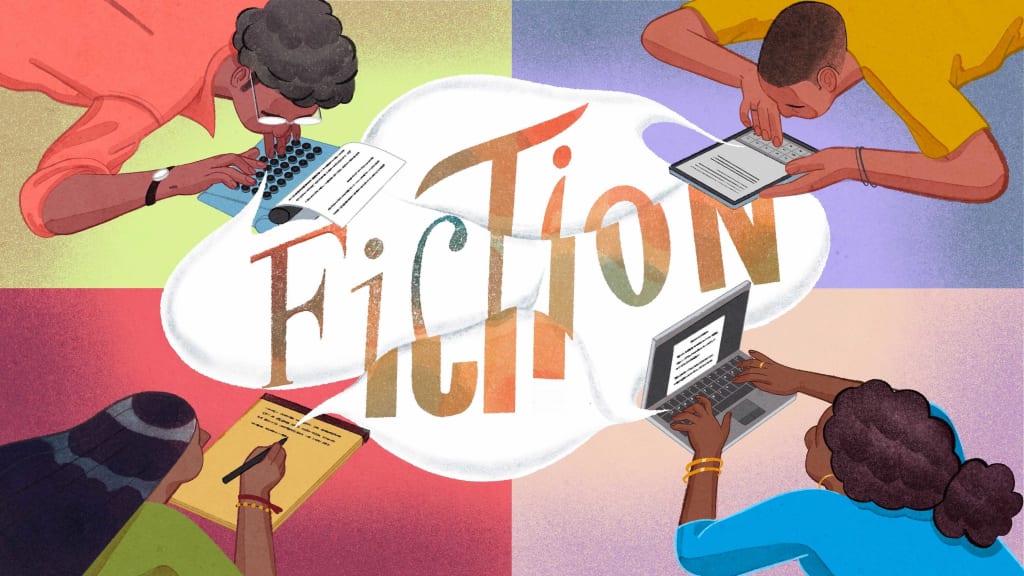The Power and Significance of Fiction: A Look at its Impact on Society
The moral of this essay is that fiction is an essential part of human culture and has a significant impact on society. It has the power to transport us to different worlds and perspectives, promote empathy and understanding, provide a form of escapism, and serve as a vehicle for social and political commentary. However, consumers of fiction must be critical and discerning to avoid potential negative impacts, such as perpetuating harmful stereotypes or promoting harmful ideologies. Overall, fiction has the potential to inspire and transform us, and it is up to us to use this power for good.

Fiction is a genre of literature that tells stories about imaginary or made-up people, places, and events. It is a broad category that encompasses various forms of storytelling, including novels, short stories, plays, and films. Fiction has been an integral part of human culture for centuries, and its popularity has only increased with the advent of modern technology and media. In this essay, I will explore the significance of fiction and its impact on society.
Fiction has a unique ability to transport readers or viewers to different worlds and experiences. It allows us to explore new perspectives, expand our imaginations, and gain insight into the human condition. Through fiction, we can experience different cultures, historical periods, and social issues, all from the comfort of our own homes.
One of the most significant contributions of fiction to society is its ability to promote empathy and understanding. When we read or watch stories that depict characters from different backgrounds, we are forced to confront our own biases and assumptions. Fiction can challenge our preconceived notions about people and the world, and can encourage us to see things from a new perspective. In this way, fiction can help promote empathy and understanding, which are essential components of a healthy and inclusive society.
Another important role of fiction is its ability to provide a form of escapism. Many people turn to fiction as a way to relax, de-stress, and take a break from their daily lives. Whether it's a romantic comedy, a science-fiction adventure, or a gripping mystery, fiction can provide a temporary escape from the challenges of the real world. This is particularly important in times of crisis or uncertainty, when people may be looking for a way to cope with stress and anxiety.
Fiction can also serve as a vehicle for social and political commentary. Many works of fiction, particularly dystopian novels, explore social issues and offer critiques of existing political systems. Through these stories, authors can raise awareness about societal problems and encourage readers to take action to effect change. Fiction can be a powerful tool for sparking social and political dialogue and can inspire people to work towards a more just and equitable society.
However, not all fiction is created equal, and some works can be problematic or harmful. Fiction can perpetuate harmful stereotypes, romanticize abusive or unhealthy relationships, or present inaccurate or harmful information. It is important for consumers of fiction to be critical and discerning, and to be aware of the potential impact that these works can have on themselves and others.
In addition, fiction can be used for propaganda and to promote particular agendas. Governments and other organizations have used fiction as a means of spreading propaganda and influencing public opinion. This can be particularly dangerous when it is used to spread false or misleading information, or to promote harmful ideologies.
Despite these potential pitfalls, the benefits of fiction far outweigh the negatives. Fiction can provide a means of entertainment, a source of empathy and understanding, and a tool for social and political commentary. It can help us to explore new ideas, challenge our assumptions, and gain a deeper understanding of the world around us.
In conclusion, fiction is an essential component of human culture and has played an important role in shaping society. Its ability to transport us to different worlds and perspectives, promote empathy and understanding, and provide a form of escapism makes it an invaluable tool for personal growth and societal change. While there are potential risks associated with fiction, it is ultimately up to consumers to be critical and discerning in their consumption of these works. Fiction has the power to inspire and transform us, and it is up to us to harness that power for good.
About the Creator
Huzaifa Ishtiaq
Hi I am Huzaifa Ishtiaq from Pakistan.... Student of Architecture....
Writing Stories is my hobby....So I am here...





Comments
There are no comments for this story
Be the first to respond and start the conversation.